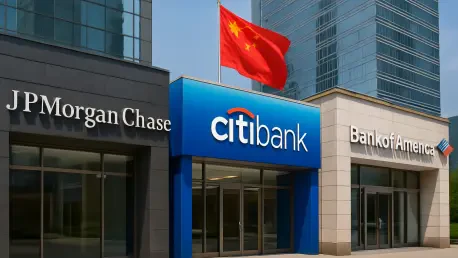
In a dynamic financial landscape where leadership transitions can significantly influence a company’s trajectory, a major Rhode Island-based lender has made a strategic move that signals both continuity and ambition. The announcement of a new head for its commercial banking division underscores the

In the intricate web of global finance, China stands as a colossus that no major bank can afford to overlook, even amidst rising geopolitical frictions. As tensions between the U.S. and China continue to shape international business dynamics, financial powerhouses like JPMorgan Chase and Goldman

What does it take for a financial titan to not only weather an unpredictable economy but to soar above Wall Street's wildest dreams? Bank of America has achieved just that in the third quarter, posting a staggering net income of $8.5 billion and sending its stock price rocketing by 5.3%. This

In an era where financial institutions are constantly seeking innovative ways to stand out, TD Bank has taken a uniquely charming approach to community engagement by introducing Automated Treat Machines (ATMs) for dogs at select branches across the United States. Based in Mount Laurel, New Jersey,

Imagine a world where banking services are available at any hour of the day, where transactions are processed in the blink of an eye, and where potential fraud is detected before it even impacts an account. This is no longer a distant vision but a tangible reality driven by artificial intelligence

In a striking development that has captured the attention of the global financial community, a major banking giant has unveiled a transformative plan to acquire full control of one of Hong Kong's most prominent lenders in a deal valued at a staggering US$37 billion. This ambitious proposal not only